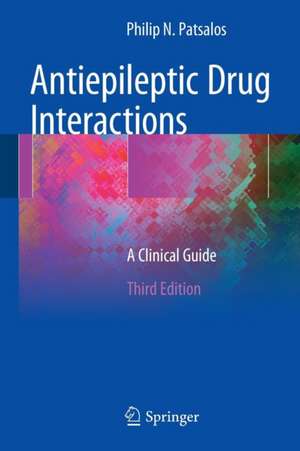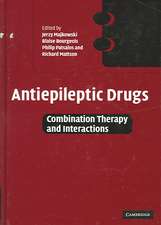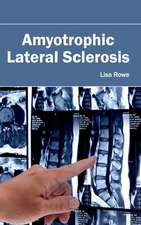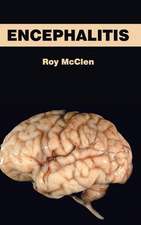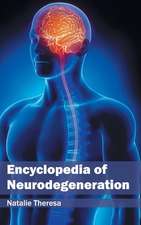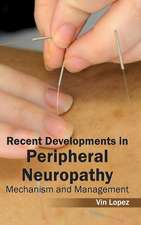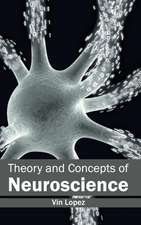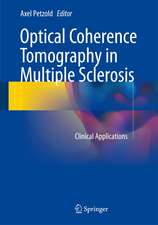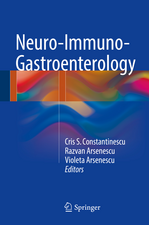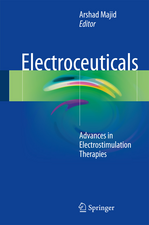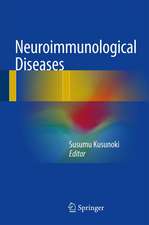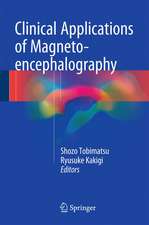Antiepileptic Drug Interactions: A Clinical Guide
Autor Philip N. Patsalosen Limba Engleză Paperback – 2 aug 2016
Antiepileptic Drug Interactions: A Clinical Guide, 3rd Editionwith its clear, concise and unambiguous content will
allow physicians and allied health professionals to make more rational choices when AED polytherapy regimens are indicated. There is always a choice and avoiding highly interacting drugs and choosing drug combinations that are minimally interacting or do not interact should be the goal in treating patients with epilepsy. This book provides all the necessary information so as to allow this goal to be achieved and, if necessary, to aid effective management of AED interactions.
Preț: 597.64 lei
Preț vechi: 629.10 lei
-5% Nou
Puncte Express: 896
Preț estimativ în valută:
114.37€ • 118.68$ • 95.59£
114.37€ • 118.68$ • 95.59£
Carte tipărită la comandă
Livrare economică 13-19 martie
Preluare comenzi: 021 569.72.76
Specificații
ISBN-13: 9783319329086
ISBN-10: 3319329081
Pagini: 250
Dimensiuni: 155 x 235 x 21 mm
Greutate: 0.55 kg
Ediția:3rd ed. 2016
Editura: Springer
Colecția Springer
Locul publicării:Cham, Switzerland
ISBN-10: 3319329081
Pagini: 250
Dimensiuni: 155 x 235 x 21 mm
Greutate: 0.55 kg
Ediția:3rd ed. 2016
Editura: Springer
Colecția Springer
Locul publicării:Cham, Switzerland
Cuprins
Notă biografică
Philip
N.
Patsalos,
FRCPath,
PhD
Professor of Clinical Pharmacology/Consultant Clinical Pharmacologist
Institute of Neurology/The National Hospital for Neurology and Neurosurgery, Queen
Square, London and the Epilepsy Society, Chalfont St Peter, UK
Professor of Clinical Pharmacology/Consultant Clinical Pharmacologist
Institute of Neurology/The National Hospital for Neurology and Neurosurgery, Queen
Square, London and the Epilepsy Society, Chalfont St Peter, UK
Textul de pe ultima copertă
This
updated
third
edition
of
a
successful
book
is
a
description
of
both
pharmacokinetic
and pharmacodynamic
antiepileptic
drug
(AED)
interactions,
including
details
of
the
magnitude
and
mechanism
of interactions,
and
also
of
drug
combinations
that
are
not
associated
with
interactions
and
therefore
can
be
coprescribed without
undue
concern.
Presented
in
alphabetical
order
and
by
drug
class,
drug
interactions
that
occur between
AEDs
and
also
between
AEDs
and
non-AEDs
are
described
in
three
sections:
Drug
interactions
between AEDs;
Drug
interactions
between
AEDs
and
non-AED
Drugs:
Interactions
affecting
AEDs;
Drug
interactions between
AEDs
and
non-AED
Drugs:
Interactions
affected
by
AEDs.
Antiepileptic Drug Interactions: A Clinical Guide,3rd Edition with its clear, concise and unambiguous content will allow physicians and allied health professionals to make more rational choices when AED polytherapy regimens are indicated. There is always a choice and avoiding highly interacting drugs and choosing drug combinations that are minimally interacting or do not interact should be the goal in treating patients with epilepsy. This book provides all the necessary information so as to allow this goal to be achieved and, if necessary, to aid effective management of AED interactions.
Antiepileptic Drug Interactions: A Clinical Guide,3rd Edition with its clear, concise and unambiguous content will allow physicians and allied health professionals to make more rational choices when AED polytherapy regimens are indicated. There is always a choice and avoiding highly interacting drugs and choosing drug combinations that are minimally interacting or do not interact should be the goal in treating patients with epilepsy. This book provides all the necessary information so as to allow this goal to be achieved and, if necessary, to aid effective management of AED interactions.
Caracteristici
Covers
all
clinically
licensed
AEDs,
including
those
licensed
only
in
specific
countries
or
that
have
limited
indications
Highlights the way AED interactions occur in three separate sections
Includes details of the mechanism and magnitude of the interaction between drugs
Both pharmacokinetic and pharmacodynamic interactions are described
Includes AED combinations that are not associated with interactions
Now includes sections on recently licensed AEDs perampanel and brivaracetam
Highlights the way AED interactions occur in three separate sections
Includes details of the mechanism and magnitude of the interaction between drugs
Both pharmacokinetic and pharmacodynamic interactions are described
Includes AED combinations that are not associated with interactions
Now includes sections on recently licensed AEDs perampanel and brivaracetam
